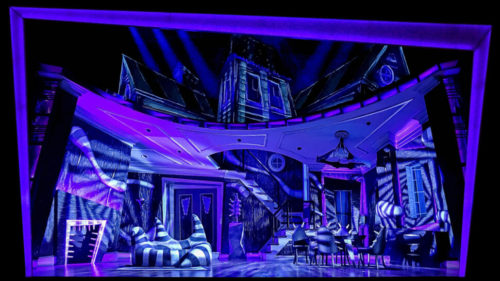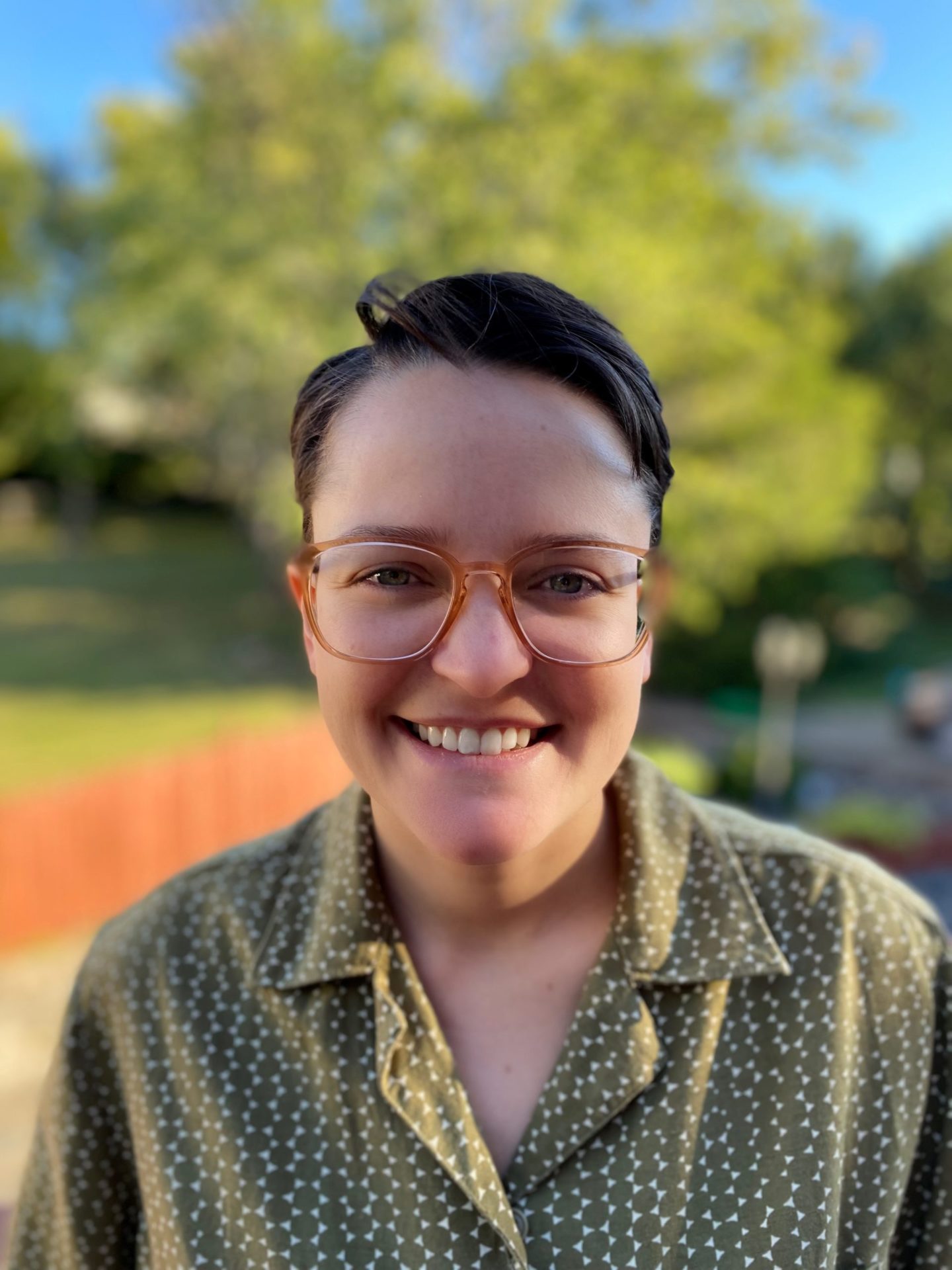Beetlejuice: The Musical Is Better Than The Movie
On tour since 2022, Beetlejuice: The Musical is at TPAC March 12-17, and sold out almost every performance. I attended opening night, and despite the half-hour interruption due to some electrical problem that occurred twenty minutes into the performance, had a marvelous time. I’d never seen Andrew Jackson Hall that full, or the audience that enthusiastically engaged. I didn’t hear any grumbling during the unexpected delay; rather people seemed to find it a good opportunity to buy more concessions and merchandise, or squeeze in a trip to the bathroom.
The musical adaptation of the 1988 film is, in my possibly heretical opinion, much better. It isn’t afraid to shift some major story elements: the Maitlands, the nice couple who die at the beginning of the story, play a much more minor role, and Lydia (played by young Winona Ryder in the film) is made into a much more sympathetic character. Instead of simply being strange and morbid, she is struggling through grief at her mother’s death and her father’s seeming emotionlessness. Instead of focusing on the Maitlands’ struggle to figure out the afterlife, the musical has Beetlejuice burn their Handbook for the Afterlife before they awake as ghosts. In this, the conflict of the story is between Beetlejuice’s desire to join the world of the living and Lydia’s desire to reach her dead mother.

The musical begins with Lydia’s lovely and sincere ballad at her mother’s funeral. As it ends, Beetlejuice says, “Holy crap, a ballad already? And such a bold departure from the original source material,” then begins his song, “Welcome to a Show About Death.” The contrast between Beetlejuice and Lydia continues throughout the musical, balancing what many postmodern stories can’t seem to figure out: how to be vulnerable, sincere, and funny at the same time. Here, Lydia is focused on her loss and then, later in the story, on finding her mother in the Netherworld. Beetlejuice is that ridiculous sort of amoral agent of chaos, who is bad, crass, and disgusting but who is enjoying himself so thoroughly that you can’t help but enjoy him. Meta-humor is quite prevalent, especially at the beginning, with Beetlejuice setting up the story for the audience and yelling at people in the crowd. The self-referential humor isn’t overdone, and really fits in well with the material and the music theater setting. Having someone on stage occasionally give a flippant tweak to the fibers of the audience’s interconnected imagination is quite fun.
Like the film, the musical is frequently crass and there are plenty of sexual jokes that make it definitely not for children. I have seen comments online saying that the musical is too crude, which I find somewhat surprising: the original film has always been crude. The audience the night I attended was mainly adults, and if any of the parents who did bring children to the show were unpleasantly surprised, well, the show has a content advisory.
The story is weighted toward Beetlejuice’s personality, and the only character that can combat that is Lydia. The Maitlands have been changed from an comically idyllic couple into lame repressed millennials panicking about whether they should follow through on their original plan to have a baby, then accidentally electrocute themselves. The joke that they’re lame went for a little too long, so I didn’t really care about their plot points or character growth besides the fact that they helped Lydia. Delia, the life coach hired by Lydia’s dad to help her through her grief, is a ridiculous character mocking all the current “spiritual” pretensions, and leading to a funny song between her and Lydia, letting their conflicting philosophies battle, the dual extremes of believing in nothing and believing in everything.
The second act of the musical is different than that of the film, Lydia learning to value life, let go of her mother, and come to an understanding with her father. Even Beetlejuice has a brief moment of goodness, although don’t worry, he doesn’t suddenly turn into a good person. Both the musical and film share the same ending, of singing more Harry Belafonte as an unorthodox but happy family.

The sets, lighting, and practical effects are absolutely fantastic. They are over-the-top and Burtonesque, vibrant and active. The set changes frequently, the Maitlands’ house askew and at odd angles, like a more consumer-friendly, funhouse version of sets from The Cabinet of Dr. Caligari. The lighting accentuates all the moments of ghostly magic, sometimes even blasting the audience with such bright flashes of light the stage becomes unseeable, allowing actors to leave the stage in their comparative darkness. The green glowing light of the doorway to the Netherworld is particularly well done. There are many practical effects, too: Beetlejuice tosses fire, removes and shifts limbs, hands appear out of platters or snakes from heads, a giant sand worm appears, and so on. In a world inundated with CGI and easy digital editing, it’s refreshing to be surprised and impressed, to wonder “how they did do that” before being pulled back into the story.
The music itself is great, Eddie Perfect’s lyrics being particularly funny, and they’re full of plot and dialogue, propelling the story forward. His adaptation of “Day-O (The Banana Boat Song)” and “Jump in the Line ” are fun and more than simple covers. I’d wondered going in if the music was going to be 80’s themed as part of a nostalgia-grab, but it isn’t. It uses the ensemble well and blends different musical elements to match the content: some dies irae, classic and modern Broadway sound, a little pop, and circusy and Elfman vibes.

Justin Collette as Beetlejuice is wonderful, his gleeful horribleness fun to watch and energizing the entire play. His gravely tone and strong voice work well and his comic timing is fantastic. If every other actor was a dud, he would still manage to make the show work. Luckily, that isn’t the case, and Isabella Esler is an excellent Lydia: sad but not whiny, strong but not unkind, with a sense of humor and a strong voice. To add to her perfect casting, she’s petite and all the adults characters tower over her emphatically. The ensemble gives strong choral moments and acrobatic dancing, especially during the song “That Beautiful Sound” when Beetlejuice dances with many doppelgängers of himself.
I recommend seeing the show: if you never were a Tim Burton fan, this musical tones down some of the grimy ghoulishness of the film, and if you are a big fan, it’s got even more theatrical vigor than the movie. The run at TPAC is almost over, but the show will be in Georgia, Kentucky, and even Tennessee again in the coming months, so if you’re interested see https://beetlejuicebroadway.com/.



